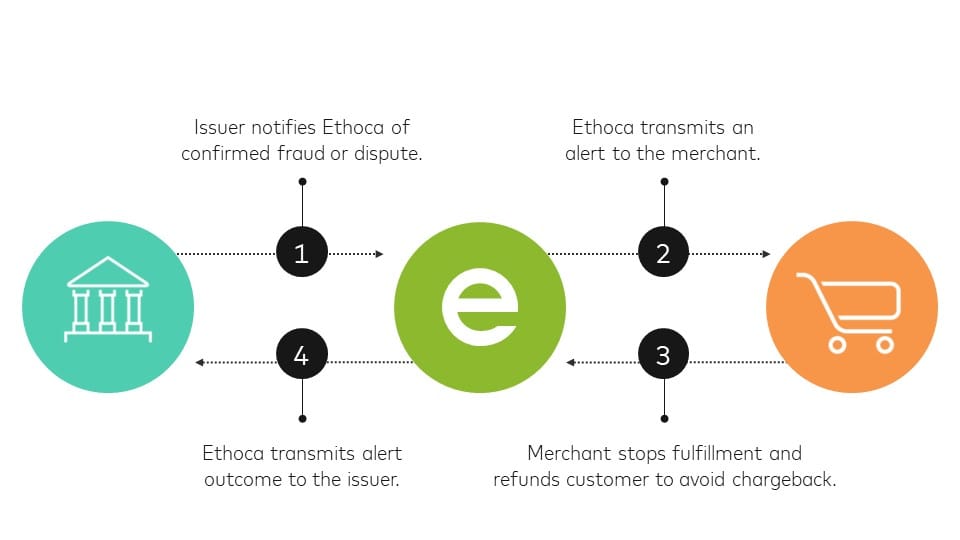
SuperPay helps accountants like yourself get paid as quickly as possible. Choose our platform to power your one-off and recurring billing.
As the accounting industry continues to evolve, accountants are finding that offering advisory services can be a game-changer for their businesses. Traditionally, accountants have primarily focused on providing compliance services such as tax preparation and financial reporting. However, the role of accountants is expanding beyond these traditional services, and the demand for advisory services is on the rise.
In this blog post, we will explore the reasons why accountants should consider offering advisory services and the benefits that come with it. We will also discuss how accountants can transition into offering these services and overcome the challenges that may arise. Additionally, we will provide real-life case studies of accounting firms that have successfully implemented advisory services.
Understanding the Role of Advisory Services in Accounting
Advisory services in accounting involve providing clients with strategic advice and guidance to help them make informed business decisions. This can include financial planning, investment advice, risk management, and business strategy. By offering these services, accountants become trusted advisors to their clients, providing them with valuable insights and solutions to improve their financial position and achieve their business goals.
The Benefits of Offering Advisory Services
There are several compelling reasons why accountants should consider incorporating advisory services into their offerings.
Increased Revenue: Offering advisory services can significantly increase revenue for accounting firms. Unlike compliance services that are often transactional in nature, advisory services involve ongoing client engagements, leading to recurring revenue streams.
Enhanced Client Relationships: Providing advisory services allows accountants to develop deeper relationships with their clients. By becoming trusted advisors, accountants gain a better understanding of their clients' businesses and can offer personalized advice tailored to their unique needs. This strengthens the client-accountant relationship and fosters long-term loyalty.
Diversification of Services: By expanding their services to include advisory, accountants can diversify their revenue streams and reduce reliance on traditional compliance services. This not only helps accountants navigate market fluctuations but also positions them as comprehensive financial advisors.
How to Transition into Offering Advisory Services
Transitioning into offering advisory services requires careful planning and preparation. Here are some key steps to consider:
Acquiring Necessary Skills and Knowledge: Accountants must develop the necessary skills and knowledge to provide effective advisory services. This may involve obtaining additional certifications or attending specialized training programs.
Implementing Advisory Services into Your Business Model: Accountants need to assess their current business models and determine how advisory services can be integrated effectively. This involves identifying target clients, defining service offerings, and establishing pricing structures.
Marketing Your New Services: Once advisory services are in place, it is crucial to market them effectively. This may involve updating your website, creating targeted marketing campaigns, and leveraging client referrals.
Challenges in Offering Advisory Services and How to Overcome Them
While offering advisory services can be highly rewarding, there are challenges that accountants may face. These include time and resource management, maintaining quality in both traditional and advisory services, and the need for continuous learning and adaptation. We will discuss strategies to overcome these challenges and ensure a successful transition.
Case Studies: Successful Implementation of Advisory Services in Accounting Firms
To provide real-life examples, we will showcase case studies of accounting firms that have successfully incorporated advisory services into their practice. These case studies will highlight the strategies they employed, the benefits they experienced, and the lessons learned along the way.
In conclusion, offering advisory services presents a tremendous opportunity for accountants to expand their services, increase revenue, and build stronger client relationships. By understanding the role of advisory services, overcoming challenges, and learning from successful examples, accountants can position themselves as trusted advisors and thrive in the changing landscape of the accounting industry.
Understanding the Role of Advisory Services in Accounting
Advisory services play a vital role in the accounting industry as they go beyond the traditional compliance services typically offered by accountants. To fully comprehend the significance of advisory services, it is essential to understand their role in accounting. This section will delve into the various aspects of advisory services and their impact on clients and accounting firms.
1.1 The Definition of Advisory Services in Accounting
- Explaining the concept and scope of advisory services
- Differentiating advisory services from compliance services
1.2 The Evolution of Advisory Services in Accounting
- Tracing the historical development of advisory services
- Examining the factors driving the growth of advisory services
1.3 The Importance of Advisory Services for Clients
- Understanding the value clients derive from advisory services
- Highlighting the impact of advisory services on clients' decision-making processes
1.4 The Benefits of Advisory Services for Accounting Firms
- Discussing the advantages of incorporating advisory services in accounting firms
- Exploring how advisory services contribute to firm growth and sustainability
1.5 The Role of Accountants as Trusted Advisors
- Explaining the shift from compliance-focused accountants to trusted advisors
- Emphasizing the importance of building client trust and rapport
1.6 Types of Advisory Services in Accounting
- Providing an overview of the various types of advisory services offered by accountants
- Discussing examples such as financial planning, risk management, and business strategy
1.7 The Relationship Between Compliance Services and Advisory Services
- Exploring the connection between compliance and advisory services
- Understanding how these services complement each other in the accounting profession
1.8 The Impact of Technology on Advisory Services
- Examining the role of technology in enhancing advisory services
- Discussing the integration of accounting software and data analytics in advisory practices
By gaining a comprehensive understanding of the role of advisory services in accounting, accountants can better appreciate the benefits they offer, both for clients and their own firms. This knowledge serves as a foundation for accountants looking to transition into offering advisory services and provides insight into the value they can bring to their clients' businesses.

The Benefits of Offering Advisory Services
Offering advisory services can bring numerous benefits to accountants and their firms. In this section, we will explore the advantages of incorporating advisory services into the accounting practice. Understanding these benefits can serve as a compelling motivation for accountants to consider expanding their services beyond traditional compliance work.
Increased Revenue:
- Discussing how advisory services can generate additional revenue streams
- Exploring the potential for recurring revenue through ongoing client engagements
- Highlighting the financial growth opportunities for accounting firms
Enhanced Client Relationships:
- Exploring the role of advisory services in building stronger client relationships
- Discussing how advisory services position accountants as trusted advisors
- Examining the impact of improved client relationships on client retention and referrals
Diversification of Services:
- Explaining the importance of diversifying service offerings
- Discussing how advisory services can help accountants reduce reliance on compliance services
- Highlighting the advantages of a well-rounded service portfolio in attracting clients
Value-added Services:
- Exploring how advisory services provide value beyond compliance
- Discussing the ability of advisory services to address clients' specific needs and challenges
- Highlighting the impact of value-added services on client satisfaction and loyalty
Competitive Advantage:
- Examining how offering advisory services can differentiate accounting firms from competitors
- Discussing the growing demand for advisory services in the market
- Highlighting the potential for attracting new clients and expanding the firm's reach
Personal and Professional Growth:
- Discussing how offering advisory services can contribute to personal and professional development for accountants
- Exploring the opportunity to expand skill sets and knowledge in new areas
- Highlighting the satisfaction derived from making a meaningful impact on clients' businesses
By understanding and embracing the benefits of offering advisory services, accountants can position themselves for long-term success and growth. These advantages extend beyond financial gains and have a profound impact on client relationships, service diversification, competitive positioning, and personal fulfillment. The next section will delve into the practical steps accountants can take to transition into offering advisory services.
How to Transition into Offering Advisory Services
Transitioning into offering advisory services requires careful planning and preparation. In this section, we will explore the essential steps that accountants need to take in order to successfully integrate advisory services into their existing business model. By following these steps, accountants can ensure a smooth and effective transition into offering advisory services.
Acquiring Necessary Skills and Knowledge:
- Identifying the skills and knowledge required for offering advisory services
- Assessing existing competencies and identifying areas for development
- Exploring professional certifications, training programs, and continuing education opportunities
Understanding Client Needs and Market Demand:
- Conducting market research to identify client needs and preferences
- Analyzing the demand for advisory services in the target market
- Identifying the specific advisory services that align with client needs and market demand
Defining Service Offerings:
- Determining the scope and range of advisory services to be offered
- Assessing the firm's capabilities and resources in delivering these services
- Developing a clear value proposition for each advisory service offered
Pricing and Packaging:
- Establishing pricing strategies for advisory services
- Considering different pricing models such as hourly rates, fixed fees, or value-based pricing
- Determining the packaging of advisory services (e.g., standalone offerings, bundled packages)
Building Internal Expertise:
- Identifying team members with relevant skills and expertise for advisory services
- Providing training and professional development opportunities for staff
- Ensuring that the firm has a dedicated team to handle advisory service delivery and client management
Implementing Technology Solutions:
- Evaluating and implementing technology tools to support advisory service delivery
- Leveraging accounting software, data analytics, and reporting tools
- Ensuring data security and compliance when using technology solutions
Developing Client Communication and Education:
- Creating marketing materials and client communication strategies to promote advisory services
- Educating clients about the value and benefits of advisory services
- Demonstrating the firm's expertise and track record in delivering advisory services
Monitoring and Evaluating Performance:
- Establishing key performance indicators (KPIs) to measure the success of advisory service offerings
- Monitoring client satisfaction, revenue growth, and client retention rates
- Conducting regular performance evaluations and making necessary adjustments to improve service delivery
By following these steps, accountants can effectively transition into offering advisory services. This process involves acquiring the necessary skills, understanding client needs, defining service offerings, pricing services appropriately, building internal expertise, leveraging technology, communicating with clients, and continuously monitoring performance. The next section will explore the potential challenges that accountants may encounter when offering advisory services and provide strategies for overcoming them.
Challenges in Offering Advisory Services and How to Overcome Them
While offering advisory services can bring significant benefits, there are also challenges that accountants may face during the transition and implementation process. In this section, we will explore some common challenges and provide strategies to overcome them effectively.
Time and Resource Management:
- Balancing the demands of existing compliance work with the additional workload of advisory services
- Allocating sufficient time and resources to develop and deliver high-quality advisory services
- Implementing effective project management strategies to ensure efficient service delivery
Maintaining Quality in Both Traditional and Advisory Services:
- Ensuring that the quality of compliance services does not suffer when focusing on advisory services
- Establishing clear processes and workflows to maintain consistency and accuracy in service delivery
- Regularly reviewing and updating internal controls to ensure quality across all service offerings
Continuous Learning and Adaptation:
- Keeping up with the rapidly changing business landscape and industry trends
- Engaging in continuous professional development to stay updated on relevant knowledge and skills
- Embracing a culture of learning and encouraging staff to acquire new expertise
Managing Client Expectations:
- Setting realistic expectations with clients regarding the scope and limitations of advisory services
- Communicating clearly about deliverables, timelines, and outcomes
- Proactively managing client expectations and addressing any potential gaps or misunderstandings
Building Trust and Credibility:
- Establishing credibility as a trusted advisor in the advisory services space
- Demonstrating expertise and industry knowledge through thought leadership and client success stories
- Consistently delivering high-quality advisory services and exceeding client expectations
Pricing and Value Perception:
- Determining the appropriate pricing for advisory services that reflects their value
- Communicating the value proposition effectively to clients to justify the pricing
- Regularly reviewing and adjusting pricing strategies based on market dynamics and client feedback
Collaboration and Teamwork:
- Fostering collaboration among team members involved in advisory service delivery
- Encouraging cross-functional collaboration between advisory and compliance teams
- Establishing clear communication channels and knowledge-sharing platforms
By proactively addressing these challenges and implementing strategies to overcome them, accountants can ensure a successful transition to offering advisory services. It is crucial to manage time and resources effectively, maintain quality in all service offerings, continuously learn and adapt, manage client expectations, build trust and credibility, establish appropriate pricing, and foster collaboration within the firm. The next section will provide real-life case studies of accounting firms that have successfully implemented advisory services, offering valuable insights and lessons learned.
Case Studies: Successful Implementation of Advisory Services in Accounting Firms
In this final section, we will explore real-life case studies of accounting firms that have successfully implemented advisory services into their practice. These case studies provide valuable insights into the strategies, challenges faced, and lessons learned during the transition to offering advisory services. By examining these examples, accountants can gain inspiration and practical guidance for their own journey into advisory services.
Case Study 1: Smith & Associates Accounting Firm
- Overview of Smith & Associates' decision to offer advisory services
- Strategies employed to communicate the value of advisory services to clients
- Steps taken to train and develop staff members for advisory service delivery
- Results achieved, including revenue growth, client satisfaction, and enhanced client relationships
Case Study 2: Johnson & Partners Accounting Firm
- Background on Johnson & Partners' shift towards advisory services
- Approach to identifying target clients and market demand for advisory services
- Challenges faced during the transition and strategies to overcome them
- Key outcomes and impact on the firm's growth and reputation
Case Study 3: Thompson Accounting Solutions
- Explanation of Thompson Accounting Solutions' expansion into advisory services
- Methodology used to define and package advisory service offerings
- Marketing and client communication strategies employed to promote advisory services
- Lessons learned and recommendations for accountants considering a similar transition
These case studies highlight the diverse paths taken by accounting firms to successfully implement advisory services. They showcase the importance of strategic planning, effective communication, staff training, and client-centric approaches. Additionally, they shed light on the challenges encountered during the transition and provide valuable insights into overcoming them.
By studying these case studies, accountants can gain a better understanding of the practical steps, strategies, and potential outcomes of offering advisory services. They can adapt and apply these learnings to their own firms, helping to navigate the challenges and maximize the benefits of incorporating advisory services into their practice.
In conclusion, the case studies presented in this section serve as real-world examples of accounting firms that have successfully implemented advisory services. They demonstrate the transformative impact of offering advisory services on revenue growth, client relationships, and overall firm success. By drawing inspiration from these case studies, accountants can embark on their own journey to provide valuable advisory services and thrive in the evolving landscape of the accounting industry.
Final Assessment
Providing advisory services can significantly enhance accountants' roles by offering new revenue streams, strengthening client relationships, and promoting a proactive approach to financial management. By diversifying their services, accountants can better cater to the evolving needs of their clients and stay competitive in the market.


